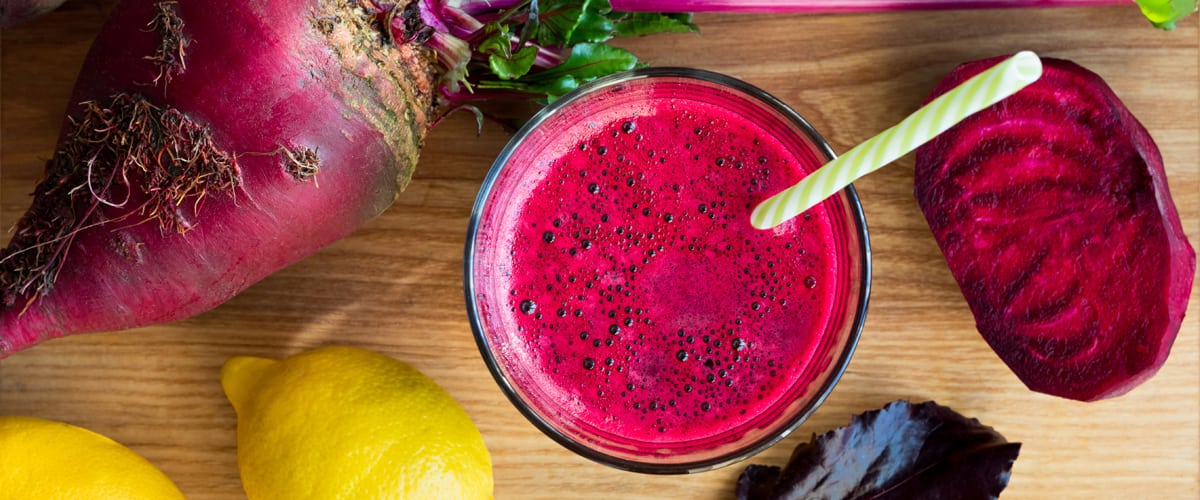Carrot, celery, and pineapple. Kale, apple, and raspberry. Spinach, peach, and mango.
Whether they’re blended at home in a breakfast smoothie or grabbed on the go as an afternoon snack, juices — thought by many to be a convenient way to consume more fruits and vegetables — are becoming increasingly popular. Many folks rely on juices as meal replacements, or go on juice cleanses or fasts to either quickly lose weight or as a so-called detox.
The options for juicing, a process during which a raw fruit or vegetable’s natural liquids, vitamins, and minerals are extracted and solid matter is discarded, leaving one with liquid, or pure juice, are endless. By the end of 2024, the cold-pressed juice market in North America is expected to be valued at more than $311 million, according to Persistence Market Research.
But is drinking copious amounts of juice for an extended time healthy?
In a nutshell: No. Health Matters turned to Shira Sussi, MS, RD, CDN, a clinical nutritionist at NewYork-Presbyterian/Columbia University Irving Medical Center, who explains why relying on juice for weight loss or its so-called cleansing properties has its drawbacks.
What is a juice fast?
Juice fasting or juice cleansing refers to limiting the diet to only juice extracted from fruits and vegetables, typically for a set period of time.
Is it healthy?
Fruit and vegetable juice can be part of a healthy diet and a way to get in additional servings of fruits and vegetables. Clinical research on juice cleanses, however, is limited. A juice cleanse typically involves lack of solid food and a low calorie intake. Long term, drinking just juice is not healthy since juice lacks protein, which could make it difficult to maintain muscle mass. Cleanses also could put you at risk for nutrient deficiencies since they lack fat-soluble vitamins and essential fatty acids.
Is a juice cleanse an effective way to lose weight?
A juice cleanse may result in short-term weight loss, which may be due to diuresis [the increased production of urine], versus true weight loss. I would not recommend it as an effective long-term way to lose weight because drinking solely juice is not sustainable. Additionally, when you deprive the body of its favorite foods for an extended period of time you’re more likely to overeat and overindulge — and as a result regain the weight — once you return to your everyday eating habits.
“Beverages, including 100 percent fruit juice, count for almost half of all added sugars consumed by Americans.”
— Shira Sussi, MS, RD, CDN
Is drinking juice as healthy as eating whole fruits and vegetables?
No. With juice you get vitamins and minerals, but in the juicing process you lose the fiber that’s found in whole fruits and vegetables. Fiber helps promote gut health and regular bowel movements, as well as satiety and hunger, which can aid in weight management and loss. Fiber intake is also a dietary contributor to reduced risk of chronic diseases, like diabetes and obesity.
Doesn’t juice contain a lot of sugar and calories?
Fruit juice, yes. With a fruit/vegetable juice it depends on how much fruit has been juiced. I typically say if it’s more fruit than you would eat at one time, then it’s probably too much fruit, and therefore too much sugar, which could lead to weight gain over time. Vegetable juice typically doesn’t contain a lot of sugar and calories. It depends which vegetables are used. Beets and carrots, for example, are higher-sugar vegetables, while celery and greens, like kale and spinach, contain less sugar. I like to say aim for a 3:1 ratio of vegetables to fruit in your juice.
Is there anything you would suggest people look out for or avoid when buying a prepackaged, fresh-pressed juice blend?
Look at the expiration date. Fresh juice can develop harmful bacteria and should be consumed as fresh as possible. Also, look at the servings in the bottle and how many grams of sugar it has.
If a bottle of juice has two servings and 20 grams of sugar per serving, that’s 40 grams of sugar in one juice! One of the key recommendations from the 2015-2020 Dietary Guidelines for Americans is to consume less than 10 percent of calories per day from added sugar. Beverages, including 100 percent fruit juice, count for almost half of all added sugars consumed by Americans.

Shira Sussi, MS, RD, CDN
Would you recommend trying this diet?
Personally, I do not recommend a juice cleanse for long-term sustainable weight loss for my patients. I actually don’t recommend it even for short-term weight loss. If you have a health condition such as diabetes, I would not recommend juicing due to its concentrated sugar content and ability to trigger an increased insulin response. If you have renal disease you may need to limit your fluid intake and avoid certain nutrients filtered by the kidneys, like potassium, which is found in many fruits and vegetables (oranges, bananas, tomatoes, and spinach). Also, some juices high in vitamin K, like those with kale or spinach, may affect anti-blood clotting medication.
What should one consider before deciding to try an all-juice diet?
Ask yourself why you’re doing an all-juice diet. Is it for a reset? To detoxify? To lose weight? Remember, the body is designed to naturally detoxify itself with the help of the liver, skin, through sweating, kidneys, and through breathing. A three-, five-, or seven-day juice cleanse is not the answer to rid your body of toxins, especially if you go right back to the toxic exposures and habits you were engaging in before doing a cleanse, such as overconsumption of fast or fried foods, refined sugars, and artificial ingredients. The answer is to fuel your body daily with the key nutrients that support proper detoxification, like antioxidants, soluble and insoluble fiber, high-quality proteins, and herbs and spices that have anti-inflammatory properties. A fruit/vegetable juice can be a part of this healthy diet. You will reap far more health and weight benefits long term by partaking in eating and lifestyle habits that aid natural detoxification versus a juice cleanse.
Shira Sussi, MS, RD, CDN, is a clinical nutritionist at NewYork-Presbyterian/Columbia University Irving Medical Center. She works at the Charles B. Rangel Community Health Center, part of NewYork-Presbyterian’s Ambulatory Care Network, and the Outpatient Nutrition Practice at NewYork-Presbyterian/Columbia. She primarily works with pediatric patients, pregnant women, and adults living with obesity, diabetes, chronic kidney disease, and heart disease.
Originally published at healthmatters.nyp.org


